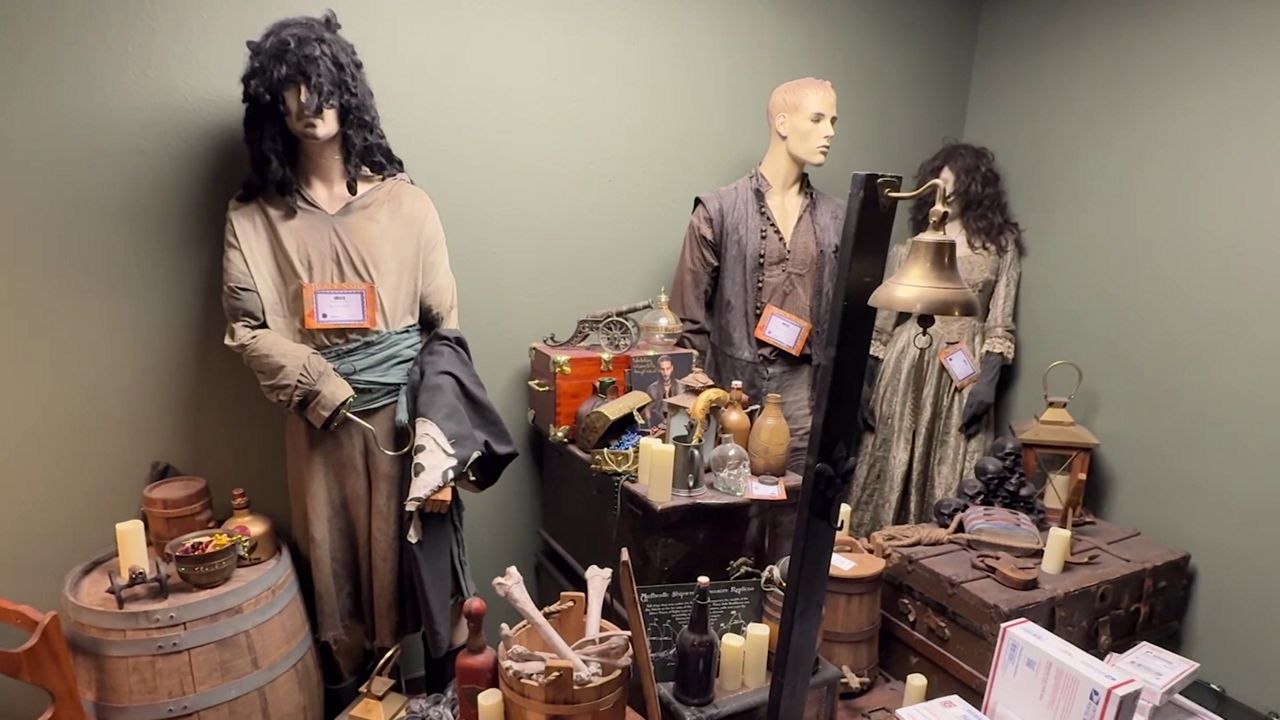TAMPA, Fla. — Halloween is nearly here, and many people are still looking for the perfect costume. One popular spot for the perfect outfit is Pirate Fashions in Tampa, but this year, tariffs are having an impact.
What You Need To Know
Pirate Fashions in Tampa faces challenges due to tariffs on imported materials
The store specializes in authentic pirate costumes, crucial for Tampa’s Gasparilla festival
Tariffs on materials from India have raised costs significantly, impacting inventory
The only thing “piraty” about the building located at 4006 West Cayuga Street is the pirate flag, but walk inside and you’re greeted with skulls, pirate ships, jewels and of course pirate costumes.
Pirate Fashions is considered “the” store for authentically made pirate costumes and has been in business for fifteen years. When the original owner retired two years ago, he sold it to his employees. At the helm now is general manger and co-owner, Devin McCabe.
“Pirate Fashions is a store where you don’t buy your clothes in a bag. You buy everything separately. So, corsets, blouses and skirts are here,” she said referring to the vibrant colored garments on each side of the aisle.
All of the costumes are made in house. Using leather sourced in the states, the store’s leatherman makes belts and boots. And in an upstairs sewing room, seamstresses stitch fabric to create the coveted costumes.
“A pirate costume is an ultimate luxury. It is so unnecessary even though I keep telling people it’s necessary in Tampa,” McCabe said.
She’s of course referring to Gasparilla. It’s the busiest time of year for the store. In fact, one-third of their yearly profits are made in the month of January.
Authentic pirate costumes are made with rugged earth tone-colored fabrics and finding them in the states she said is a challenge and a costly one.
“I have a bunch of inventory that I can’t sell because it is in another country,” McCabe said. “We actually have fabric that is custom woven and dyed for us in India. Stuff we can’t really get per yard at a good price here in America that would be reasonable at all.”
That’s why most of their fabric is imported from India, a country known for its textiles.
“We have a manufacturer named Amaud and I swear we talk every day,” McCabe said.
But with the 50% tariff on India, McCabe says wholesale prices have increased by 60%.
“Every time there’s an obstacle like the tariffs going up — the tariffs changing — I have to redo my game plan,” she said. “I have to really figure out what will work because I have to keep people employed.”
All of her employees earn a living wage, have 401Ks and benefits, but that would be impossible to do she said if her purchasing was limited to the U.S.
“I know of three mills that have closed. Despite the fact that the tariffs forcing people to use American manufacturing these American manufacturers are still closing,” McCabe said. “So, I’m still having to go out and find alternatives. Despite the fact that hypothetically they are supposed to encourage American manufacturing, I don’t see that result at all.”
In an attempt to offset the impact of the tariffs McCabe said she’s buying things upfront in smaller quantities then waiting until tariffs go down before she has them shipped. But it’s highly unlikely that will happen before Halloween which means she’ll miss out on those sales.

